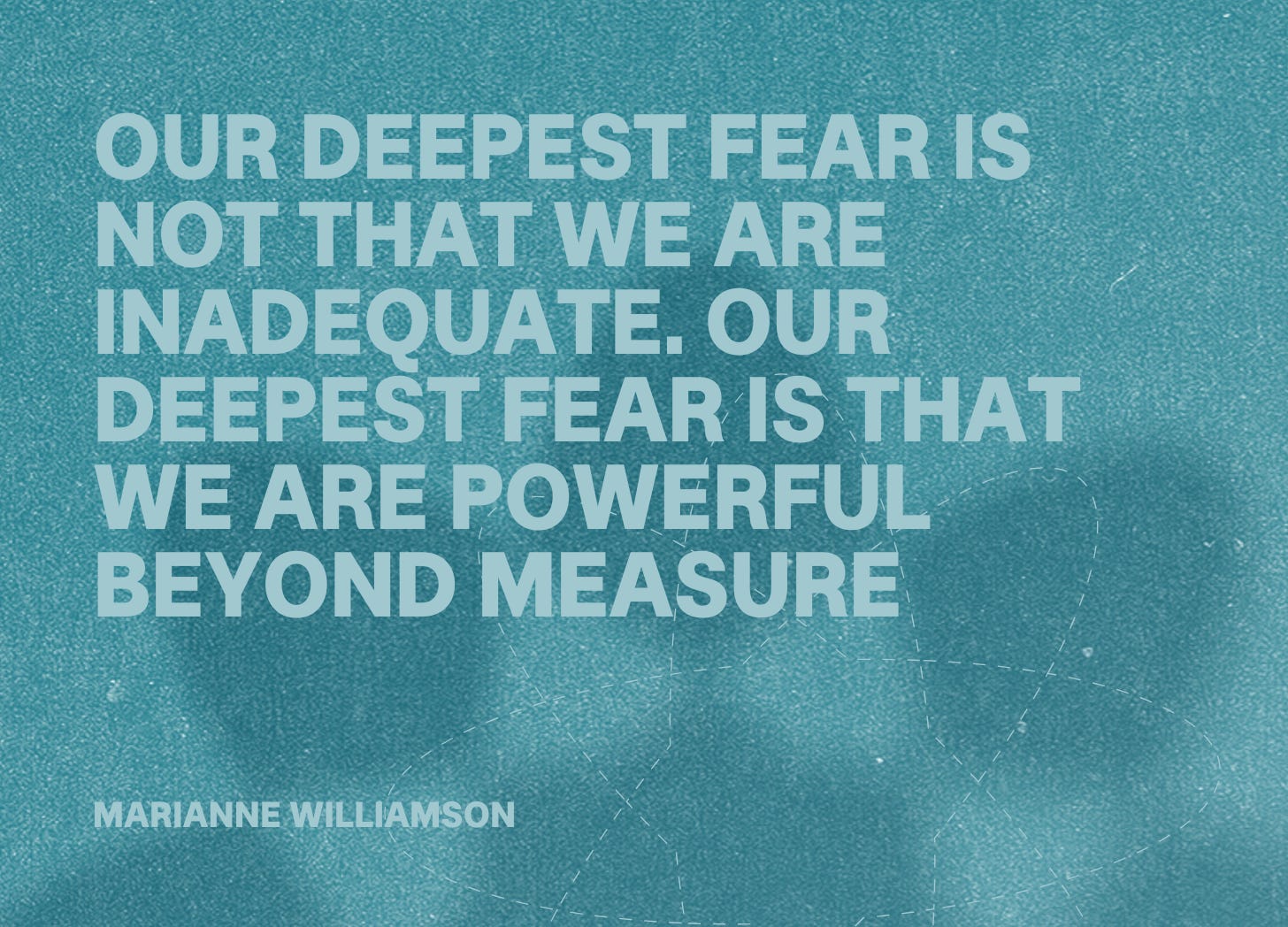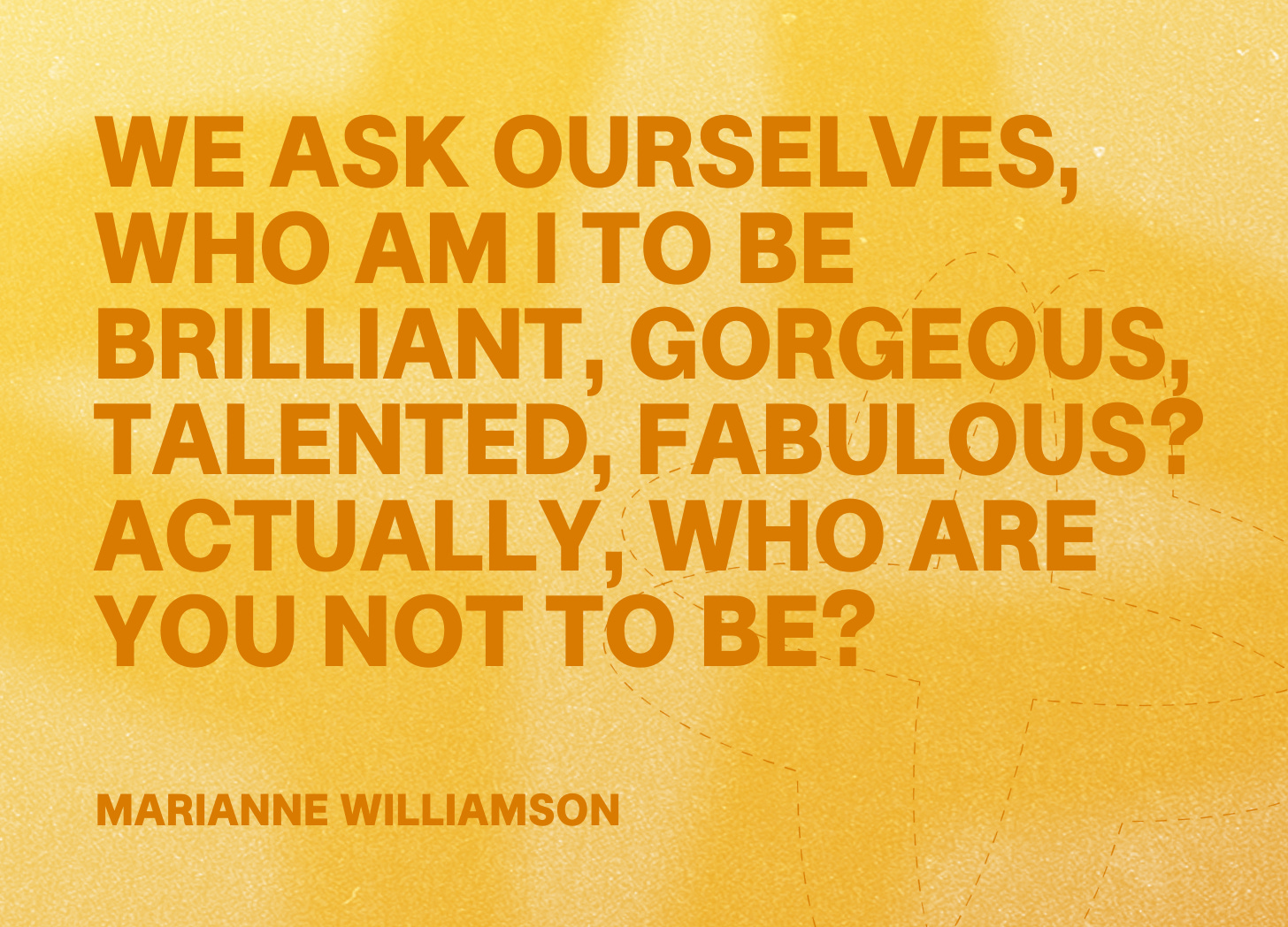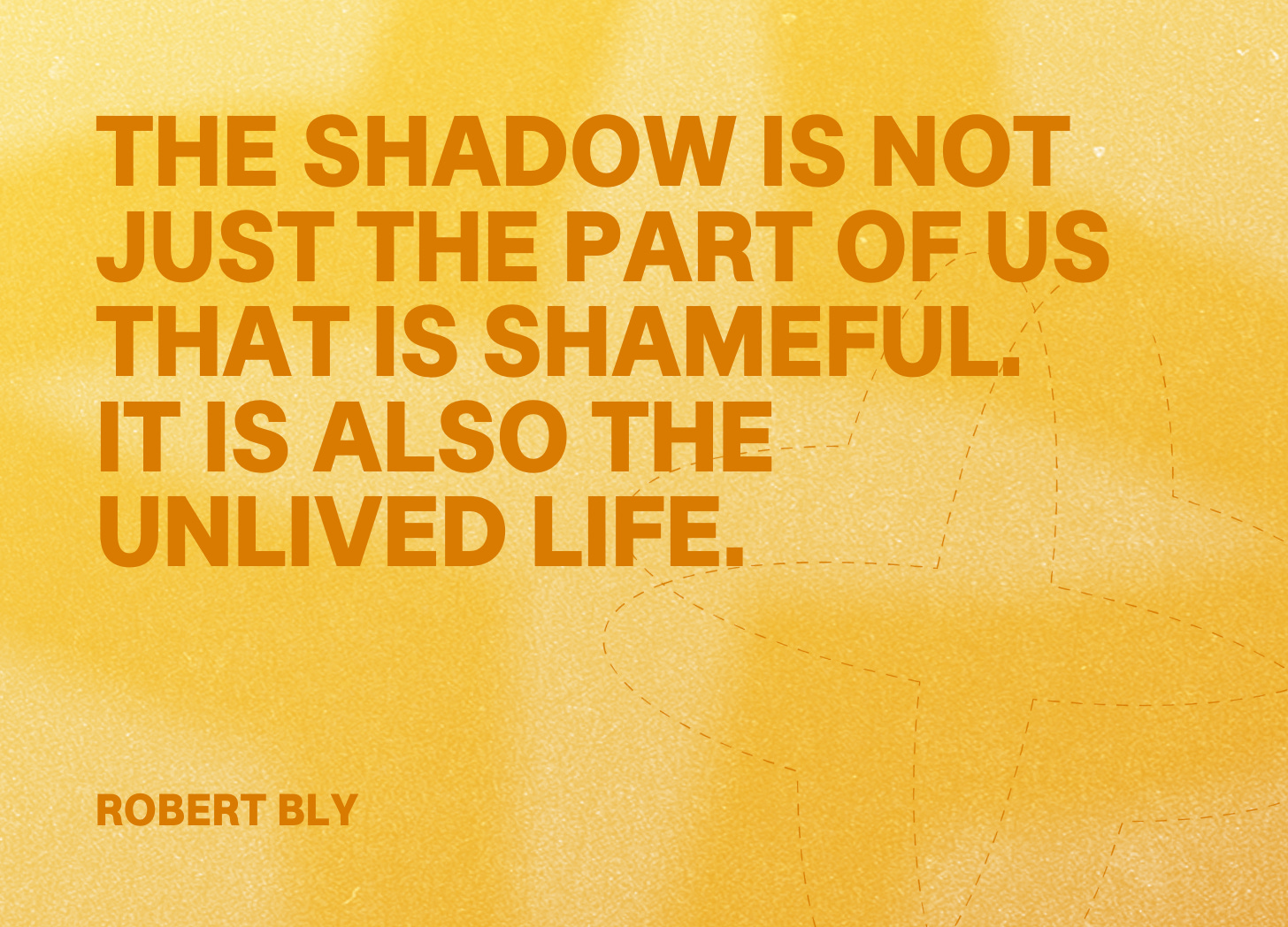Reclaiming your greatness
Introduction to Shadow Work - Part 4
Thanks for being here. This is the fourth lesson in your free Introduction to Shadow Work course. If you have landed here without reading the previous lessons, I recommend you start from the beginning. Subscribe below, and I’ll send you links to all the lessons in the course.
So far, we've talked about the wounded parts of your shadow: the anger, sadness, and defence mechanisms you've buried. But today I want to talk about something that might surprise you:
Some of the most beautiful parts of yourself are also in your shadow.
Let me tell you about three people who discovered their "golden shadow":
Lisa was raised by parents who valued humility above all else. "Don't get a big head," they'd say whenever she achieved something. "Pride comes before a fall." Lisa learned to downplay her successes, deflect compliments, and make herself smaller. She became an expert at dimming her light. Now, at 35, she's incredibly talented but constantly self-sabotages. She gets close to big opportunities, then finds ways to blow them up. Her buried confidence and natural radiance feel too dangerous to express.
Andrew grew up in a family where emotions were seen as weakness. His father never showed affection, never expressed joy or excitement. "Real men don't get emotional," was the unspoken rule. So Marcus buried his capacity for joy, wonder, and emotional expression. Now he's successful but feels numb inside. He watches his young daughter laugh and play and feels envious of her aliveness, because he can't remember the last time he felt that free.
Priya was told from a young age that she was "too much" - too loud, too passionate, too intense. Her family preferred quiet, controlled behaviour. So Priya learned to contain her natural exuberance, her sexual energy, her creative fire. Now she lives a muted version of her life, always holding back, always being "appropriate." She's drawn to bold and uninhibited people, but judges them as "attention-seeking" while secretly longing for their freedom.
Lisa, Andrew, and Priya weren't just hiding their wounds - they were hiding their gold.
What is the golden shadow?
Carl Jung talked about two kinds of shadow: the "dark shadow" (our rejected wounds and defence mechanisms) and the "golden shadow" (our disowned gifts, power, and aliveness).
Your golden shadow contains everything magnificent about you that you were taught to hide:
Your confidence and natural authority
Your sexuality and sensual aliveness
Your joy, playfulness, and spontaneity
Your creativity and unique expression
Your power and ability to impact others
Your intuition and spiritual gifts
Your capacity for success and abundance
These parts got buried for the same reason as your wounds - because expressing them felt unsafe. Maybe your family was threatened by your brightness. Maybe your culture punished people who stood out. Maybe you learned that being powerful, joyful, or successful would make you a target.
So you dimmed yourself down. You made yourself smaller. You hid those glorious parts of yourself.
How the golden shadow forms
Your golden shadow developed through subtle (and not-so-subtle) messages that your magnificence was somehow dangerous:
"Don't get too big for your britches."
"Who do you think you are?"
"Don't be a show-off."
"Good girls don't draw attention to themselves."
"Don't make others feel bad about themselves."
Maybe you were naturally confident as a child, but adults felt threatened by your self-assurance. Maybe you were joyful and exuberant, but family members found your energy "too much." Maybe you were creative and expressive, but were told to "be more realistic."
We learn to hide our light not because we're dark, but because others couldn't handle our brightness.
Sometimes the golden shadow forms through comparison and competition. If you had a sibling who was "the smart one," you might have buried your intelligence. If someone else was "the pretty one," you might have hidden your beauty. If another family member was "the talented one," you might have suppressed your gifts.
The cost of hiding your gold
When you bury your golden shadow, you don't just hide your gifts - you actively sabotage them:
Self-sabotage: You get close to success, then find ways to blow it up. You diminish your performance in important moments. You choose relationships or situations that keep you small.
Imposter syndrome: You feel like a fraud when you succeed because you don't believe you deserve good things. Your buried magnificence feels too threatening to own.
Envy and judgment: You're triggered by people who embody the qualities you've buried. The confident woman feels "arrogant." The successful man seems "selfish." The joyful person appears "fake."
Chronic underachievement: You consistently perform below your potential because shining too brightly feels dangerous.
Depression and numbness: When you cut yourself off from your aliveness, joy, and power, life feels flat and meaningless.
Why we fear our own power
It might seem strange that we'd be afraid of our own gifts, but there are good reasons:
Fear of rejection: If I'm too successful/beautiful/confident, people will resent me or leave me.
Fear of responsibility: If I own my power, I'll have to use it, and that feels overwhelming.
Fear of attack: If I stand out, I'll become a target for criticism, jealousy, or harm.
Fear of loneliness: If I'm too different or extraordinary, I won't belong anywhere.
Survivor's guilt: If I succeed, I'll be betraying my family/community/people who didn't make it.
These fears made sense when you were young and dependent on others for survival. But now they're keeping you from the very things that would bring you alive.
Recognising your golden shadow
Your golden shadow shows up in your reactions to others. Pay attention to:
Who do you envy? The people you're most jealous of often express qualities from your golden shadow. Their success, confidence, creativity, or joy triggers you because it reminds you of what you've buried.
Who do you judge as "too much"? Sometimes, we judge people for being too confident, too successful, too sexual, or too joyful because we're not allowing ourselves those qualities.
What compliments do you deflect? The praise you have the hardest time receiving often points to gifts you've disowned.
What dreams do you dismiss as "unrealistic"? Your biggest, most "impossible" dreams often contain clues about your golden shadow.
Your golden shadow practice
This week, I want you to explore your relationship with your own magnificence:
Reflection Questions:
What parts of me do I hide to avoid seeming "too much"?
What compliments do I have trouble receiving?
Who am I envious of, and what qualities do they embody?
What would I do if I knew I couldn't fail and no one would judge me?
What messages did I receive about being successful, confident, or powerful?
The envy exercise: Think of someone you envy or feel triggered by in a positive way. Instead of judging them or yourself, get curious:
What specific qualities do they have that I wish I had?
How might I already have these qualities but be hiding them?
What would it look like to express these qualities in my own unique way?
"What you admire in others is what you're ready to develop in yourself."
The compliment practice: For the next week, practice receiving compliments without deflecting:
When someone compliments you, simply say "thank you"
Notice your urge to minimise, deflect, or explain away the praise
Ask yourself: "What if this compliment is actually true?"
Integration, not performance
Here's what's important: reclaiming your golden shadow isn't about becoming arrogant, selfish, or performative. It's about integration.
True confidence feels different from arrogance. Authentic power feels different from dominance. Genuine joy feels different from manic performance.
When you reclaim your golden shadow, you're not wearing a mask - you're taking one off. You're not becoming someone else - you're becoming who you've always been underneath the hiding.
Your playing small does not serve the world. There is nothing enlightened about shrinking so other people won't feel insecure around you.
The world doesn't need another person pretending to be smaller than they are. The world needs you to be who you came here to be - brilliant, powerful, creative, joyful, and fully alive.
In our next lesson, we will talk about making friends with your inner child. This is the part of you that holds both your deepest wounds and your most natural joy. We'll explore how to reconnect with the parts of yourself that knew how to play, dream, and be authentically you before the world taught you to hide.
Your light isn't too much. It's exactly what the world needs.
Stay radiant.
P.S. If exploring your golden shadow brings up fear, that's completely normal. Your psyche buried these parts for good reasons. Go gently. Take what feels nourishing and leave the rest. There's no rush to reclaim everything at once.
Remember: You're not trying to become someone else. You're trying to become who you've always been underneath the layers of protection and hiding.




